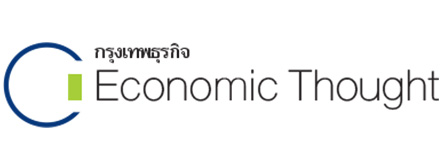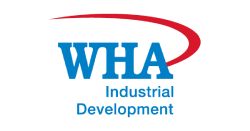記事
Waste Management
19/06/2019

Ms. Jareeporn Jarukornsakul
Chairman and Group CEO
WHA Corporation PCL
The rapidly rising levels of urbanization and industrialization are resulting in the production of enormous amounts of waste. A source revealed that in 2017, approximately 27 million tons of solid waste were generated in Thailand, or 74,998 tons a day. This means that each person generated 1.13 kilograms per day.
Thailand processes 33 million tons of industrial waste a year; 31 million tons of which are non-hazardous and 2 million hazardous. According to the Thailand Development Research Institute (TDRI), large volumes of hazardous industrial waste are being disposed of and treated improperly, through illegal dumping activities and waste disposal businesses. This is in line with a report by the Pollution Control Department (PCD), revealing that illegal dumping activities by unlicensed companies have been going on in Rayong, Samutprakarn and Chonburi provinces for the past year.
Systematic methods are needed in order to address waste management issues. It is necessary to increase the number of disposal service providers using the newest technologies. Today, there are very few such companies that tend to monopolize the situation and control the prices. The problem can be addressed by using the latest waste management methods, and one of the most remarkable technologies is waste-to-energy, that converts trash to renewable energy.
Some of the most technologically-advanced economies already have ultra-efficient waste disposal systems in place. In Europe, many countries have enforced laws regarding solid waste disposal, requiring polluters to be responsible for waste disposal at their own expense. For instance, in Germany, where waste disposal is highly-organized, the private sector is encouraged to invest in this issue. This way, the government is not burdened by huge electricity costs related to waste disposal.
In Thailand, the Alternative Energy Development Plan 2015-2036 (AEDP2015) and the Power Development Plan 2018-2037 (PDP 2018) have set the amount of energy generated from waste to 550 and 520 megawatts respectively. However, in my opinion, this is not enough and should be raised as the increasing amount of municipal solid waste and industrial waste becomes a major problem for the country. To this end, the Eastern Economic Corridor (EEC) could be a role model by building a waste-to-energy plant that can process the increasing amount of waste using advanced technologies. This could provide a substantial supply of energy to help meet the rising demand from the industrial sector, as the government launches a stimulus plan to boost investment in the EEC.
Converting waste to electricity is only one way to tackle the tremendous waste problem. Strict controls involving data disclosure are also necessary, so people will get encouraged to get involved in monitoring waste management issues. Greater transparency and efficiency will help secure a more sustainable and cleaner environment for Thailand.

